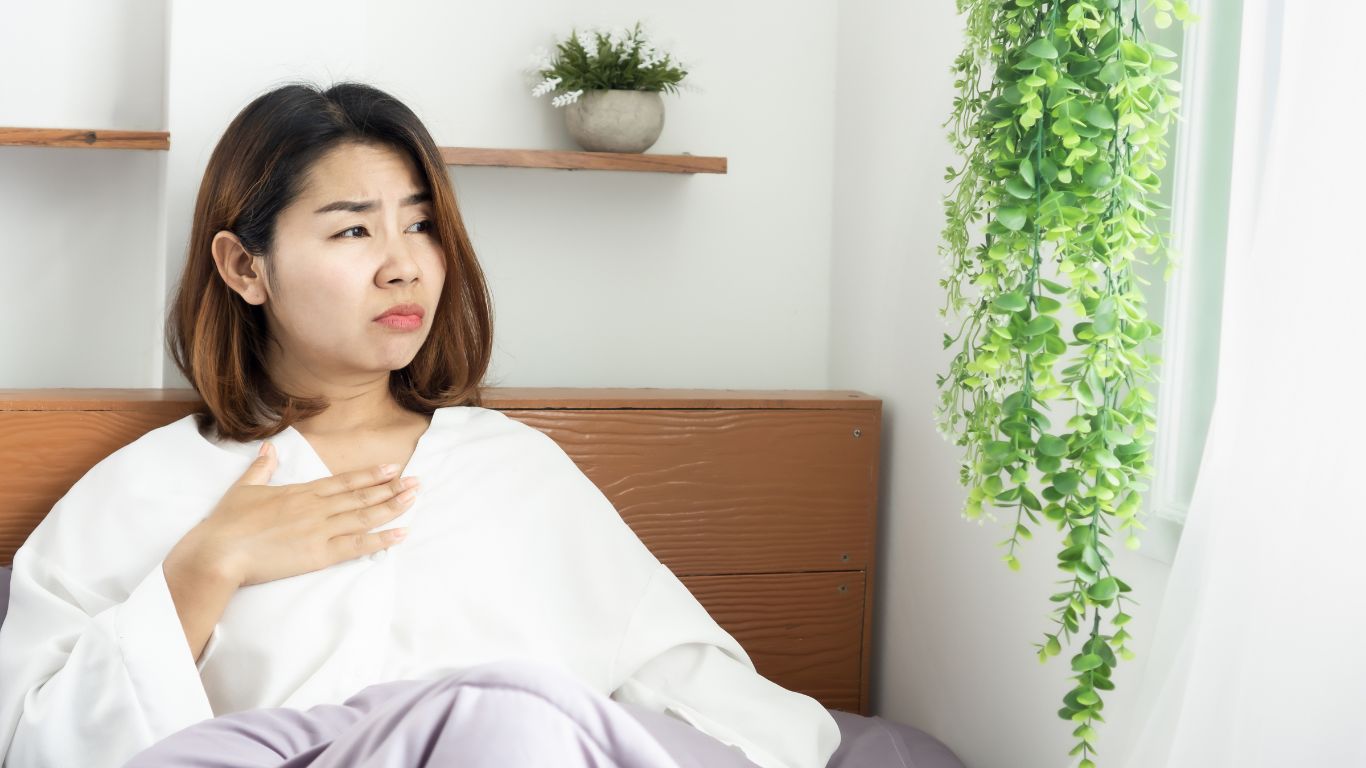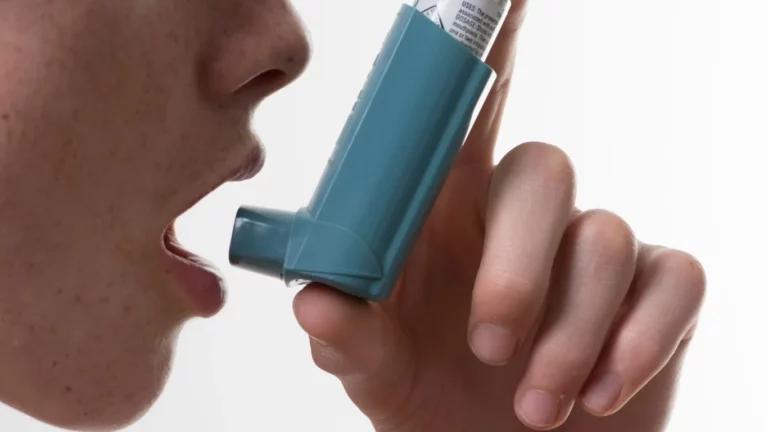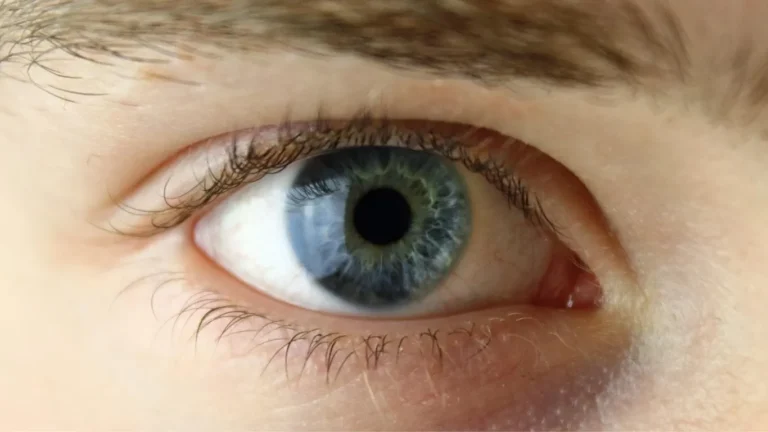Best Relaxation Techniques for GERD: Effective Ways to Relieve Symptoms
Dealing with GERD can be overwhelming, especially when you’re trying to balance your health and lifestyle. As someone who has spent years working with individuals facing digestive issues, I can tell you that managing GERD isn’t just about medications—it’s about adopting a holistic approach that includes proper relaxation. And that’s where relaxation techniques for GERD come in! These techniques aren’t just “nice-to-haves” – they can be a game changer for your overall well-being. Whether you’re struggling with acid reflux, heartburn, or other related symptoms, incorporating these methods into your routine can make a huge difference.
Understanding GERD and Its Impact on Your Life
Before diving into the relaxation techniques themselves, let’s take a moment to understand GERD and why managing it effectively is so crucial. GERD, or gastroesophageal reflux disease, is a chronic condition where stomach acid frequently flows back into the esophagus, causing irritation and a range of uncomfortable symptoms like heartburn, regurgitation, and even difficulty swallowing. If you’re reading this, you’re probably familiar with how GERD can disrupt your daily life, right?
What many don’t realize is that GERD isn’t just about the physical discomfort—it can also have a mental toll. The constant worry about flare-ups and the restrictions on your diet can cause stress and anxiety, which, in turn, can exacerbate your symptoms. That’s why it’s so important to consider the mind-body connection when managing GERD.
Why Relaxation Techniques Matter for GERD
As a GERD expert, I’ve seen firsthand how relaxation techniques can ease the daily struggles of this condition. When you’re stressed or anxious, your body goes into fight-or-flight mode, which can worsen your symptoms. Cortisol, the stress hormone, can trigger more acid production in the stomach, making GERD worse. So, relaxation techniques become essential not only for your mental peace but also for your physical comfort. Let’s explore some of the best ones you can start incorporating right away.
Deep Breathing: The Power of Calm
First on the list is deep breathing. It may sound simple, but trust me—it works wonders. When you take slow, deep breaths, it signals your body to switch from the stress response to a relaxed state. This helps lower cortisol levels, which reduces acid production in the stomach. Plus, deep breathing exercises can help ease any tension in your body, which is often linked to GERD flare-ups.

One technique I recommend is the 4-7-8 breathing method. Here’s how you can do it:
- Inhale deeply through your nose for 4 seconds.
- Hold your breath for 7 seconds.
- Exhale slowly through your mouth for 8 seconds.
Try this a few times a day—especially when you feel your symptoms flaring up. You’ll start to notice a calming effect almost immediately.
Progressive Muscle Relaxation (PMR): Releasing Tension
Another fantastic relaxation technique that I’ve seen work wonders for GERD sufferers is progressive muscle relaxation (PMR). This technique involves tensing and then relaxing each muscle group in your body, helping to release built-up tension. Tension can exacerbate GERD symptoms, so learning how to relieve it is essential.
Here’s how you can practice PMR:
- Find a quiet place where you can sit or lie down comfortably.
- Start by tensing the muscles in your feet for about 5 seconds, then release the tension for 10-15 seconds.
- Gradually work your way up your body, tensing and relaxing each muscle group: calves, thighs, abdomen, hands, arms, shoulders, neck, and face.
- Focus on how each muscle feels as you relax it.
Incorporating PMR into your daily routine can help keep your body in a more relaxed state, reducing stress and minimizing GERD flare-ups. It’s a great way to prepare your body for a restful night of sleep, too!
The Role of Mindfulness and Meditation
Mindfulness and meditation are often buzzwords in the wellness world, but they really do have a place in managing GERD. I’ve had clients who were skeptical at first, but after incorporating mindfulness practices into their routines, they reported feeling more in control of their symptoms. Here’s why: when you practice mindfulness, you become more aware of your body’s sensations and emotions, allowing you to respond to stress before it escalates into something physical, like a GERD flare-up.
Meditation, on the other hand, can help you clear your mind, focusing on the present moment rather than stressing over potential triggers. A simple 5-10 minutes of quiet reflection each day can have a profound effect on your overall well-being.

Getting Started with Meditation
If you’re new to meditation, don’t worry! You don’t need to be a seasoned yogi to benefit from it. Start with guided meditation apps like Headspace or Calm, which offer short sessions specifically designed for stress reduction. You can also find videos on YouTube or free podcasts that guide you through basic techniques.
As you practice regularly, you’ll start noticing how much better you feel mentally and physically. And who doesn’t want a bit of extra peace of mind when dealing with GERD?
Creating a Relaxing Routine for GERD Management
One of the best things you can do for your GERD is to establish a relaxing routine. We often think of routine as something rigid, but it doesn’t have to be that way. What’s important is that you’re carving out time for relaxation techniques each day, so your body has a chance to rest and reset. Whether it’s taking a few moments for deep breathing, doing some light stretches, or practicing mindfulness, these moments of calm can add up to big improvements in managing GERD.
In the next section, we’ll dive deeper into creating a bedtime routine to prevent nighttime GERD symptoms, but for now, I hope this gives you a solid start on your journey to relaxation and relief.

Bedtime Relaxation Techniques: How to Sleep Better with GERD
As anyone who suffers from GERD can tell you, nighttime can be one of the most challenging times of day. Whether you’re trying to get some shut-eye or just want to get comfortable on the couch, the thought of a GERD flare-up often keeps us up at night. But here’s the thing—your evening routine plays a huge role in managing your GERD symptoms. By implementing the right relaxation techniques before bed, you can significantly improve both your quality of sleep and your overall GERD management. Trust me, I’ve seen this work wonders in my practice.

Elevating Your Head: A Simple Yet Effective Solution
One of the simplest—and most effective—relaxation techniques for GERD at night is to elevate your head while sleeping. This position can help prevent stomach acid from traveling up into the esophagus, which can trigger that oh-so-unpleasant burning sensation. For years, I’ve recommended this to my patients, and many have shared how much of a difference it has made in preventing nighttime reflux.
If you’ve never tried this before, it’s pretty easy to do. You don’t need to buy fancy equipment or sleep aids; a couple of pillows or a wedge pillow can do the trick. Try to elevate your head by about 6 to 8 inches, which is generally the best angle for preventing acid reflux. But make sure your body remains relaxed—you don’t want to strain your neck or back. The goal is to sleep comfortably while keeping your digestive system in a position that supports better acid control.
Mindful Eating Before Bed
We all know the temptation of late-night snacking, but if you have GERD, this can be a recipe for disaster. As someone who has worked closely with GERD patients, I can tell you that what you eat before bed can have a direct impact on your symptoms. But it’s not just about avoiding trigger foods (like spicy dishes or citrus); it’s also about the timing of your meals.
Try to avoid eating at least 2-3 hours before bedtime. This gives your body ample time to digest the food, which reduces the likelihood of acid reflux. If you go to bed with a full stomach, it’s like giving your digestive system more work to do while you’re trying to rest! But if you’re genuinely hungry and need a snack, opt for something light and GERD-friendly, like a banana or a small bowl of oatmeal.

Incorporating Relaxation Into Your Daily Routine
While bedtime is a critical time for managing GERD, relaxation techniques should be a part of your daily routine, not just something you do at night. By incorporating calming practices into your day, you can reduce stress levels and create a more balanced environment for your digestive system. This is something I always emphasize to my clients—taking care of your body means taking care of your mind as well.
Yoga: A Relaxing Way to Strengthen Your Body and Calm Your Mind
Yoga isn’t just for flexibility and strength—it’s a fantastic relaxation technique for those with GERD! I’ve worked with many clients who started doing yoga specifically to manage their GERD, and they found it to be incredibly beneficial. Certain poses can help reduce stress and relieve pressure on the stomach, which can improve digestion and alleviate GERD symptoms.
For example, poses like Child’s Pose, Cat-Cow, and Seated Forward Bend are gentle and effective for releasing tension. When you practice yoga, you’re also learning to breathe deeply and mindfully, which, as we discussed earlier, helps with relaxation. This can help prevent GERD flare-ups before they even start.
Gentle Stretching: A Great Way to Wind Down
Sometimes, all your body needs to relax is a bit of gentle stretching. I love recommending stretching to my patients, especially after a long day. Stretching helps ease muscle tension, improve circulation, and relieve any stress that may be building up throughout the day. It’s a simple and low-impact way to help your body unwind and prepare for a restful night.
You can start with basic stretches like neck rolls, shoulder stretches, and a light twist to release any tightness. These can be done in just a few minutes and can have a surprisingly positive impact on your GERD symptoms. Plus, they’re super easy to incorporate into your day—whether in the morning, during your lunch break, or right before bed!
Stress Management Throughout the Day
Since we know that stress can worsen GERD symptoms, it’s vital to find ways to manage it throughout your day. I often tell my clients that stress is a natural part of life, but how we deal with it makes all the difference. Let’s be real—stress isn’t going anywhere, but with the right tools, you can keep it from affecting your health.
Taking Breaks: Don’t Overwhelm Yourself
When you’re working or running errands, it’s easy to get caught up in the hustle and forget to take breaks. But over time, this can lead to increased stress levels that ultimately affect your digestive system. I encourage everyone, whether you have GERD or not, to take short breaks during the day to relax and reset.
Even if it’s just for five minutes, step away from whatever task you’re focused on. Take a few deep breaths, stretch, or even step outside for a bit of fresh air. These little moments of relaxation can have a huge impact on your overall stress levels, helping you manage your GERD symptoms throughout the day.

The Importance of a Supportive Environment
Let’s not forget the role your environment plays in relaxation. Surrounding yourself with a calm and peaceful atmosphere can make all the difference when managing GERD. This means decluttering your space, reducing noise, and making your environment conducive to relaxation. I’ve seen patients make significant strides by simply changing how they set up their homes or workspaces. Little changes like dimming the lights or adding calming scents (like lavender) can go a long way in helping your body wind down.
Incorporating these relaxation techniques into your day-to-day life won’t just make managing GERD easier—it’ll improve your overall health and well-being. By addressing both the physical and emotional aspects of GERD, you’re setting yourself up for long-term success. So take it one step at a time, and start integrating some of these tips into your daily routine. Your body (and mind) will thank you for it!
Additional Relaxation Techniques to Ease GERD Symptoms
So far, we’ve covered a variety of relaxation techniques that can help manage GERD—everything from deep breathing to gentle stretches. But did you know there are even more techniques out there that you can incorporate into your daily routine? If you’re looking for ways to further reduce your GERD symptoms and feel better overall, I’ve got you covered. These additional methods have worked for many of my patients and have helped them take their GERD management to the next level.
Aromatherapy: Scents That Soothe
Let’s talk about aromatherapy for a second. You might not think of scents as a way to reduce GERD symptoms, but trust me, certain essential oils have calming properties that can help relax both your mind and your digestive system. Over the years, I’ve recommended essential oils like lavender, chamomile, and peppermint to my patients, and many have reported that these oils help them feel more at ease—both mentally and physically.

You can use essential oils in a few different ways. A diffuser is one of the most popular options, as it disperses the oils into the air, creating a calming atmosphere in your home or office. Alternatively, you can add a few drops of your favorite essential oil to a warm bath or apply them topically (diluted with a carrier oil) to your pulse points. When using essential oils, always remember to consult with a healthcare provider, especially if you have sensitive skin or any allergies.
Hot and Cold Therapy: The Balance of Temperature
Another technique that has helped some of my patients deal with GERD is using hot and cold therapy. The idea is simple: the warm temperature can help relax your body and ease discomfort, while cold can numb and reduce inflammation. This can be especially helpful if you’re dealing with chest pain or discomfort from acid reflux.
For hot therapy, try a warm compress or heating pad on your chest or stomach. The gentle warmth can help relax the muscles and alleviate the tightness that often accompanies GERD. On the flip side, if you feel like your symptoms are flaring up and need some relief from the burning sensation, a cold compress on your chest might provide soothing relief. The key is to experiment and see what feels best for you.
The Role of Sleep Hygiene in GERD Management
Getting enough rest is essential for anyone, but especially for those managing GERD. Over the years, I’ve seen a huge difference in how patients feel when they prioritize good sleep hygiene. Sleep hygiene refers to healthy habits that promote good quality sleep, and it can have a major impact on your GERD symptoms.
Creating the Ideal Sleep Environment
Your sleep environment plays a critical role in both your sleep quality and your GERD management. A cluttered, noisy, or uncomfortable bedroom can make it harder to relax and get a full night’s rest. As someone who’s worked with GERD patients for years, I can’t stress enough how important it is to create a peaceful, calming environment that promotes relaxation.
Start with your bedding: make sure your mattress and pillows are supportive and comfortable. Consider using a wedge pillow or an adjustable bed to help elevate your head while you sleep. This can be a game changer in preventing nighttime reflux. Additionally, make sure your bedroom is cool, dark, and quiet. If necessary, use blackout curtains, earplugs, or a white noise machine to create the perfect sleep sanctuary.

Consistency Is Key
When it comes to sleep, consistency is just as important as comfort. Try to go to bed and wake up at the same time every day, even on weekends. This helps regulate your body’s natural circadian rhythm, making it easier to fall asleep and stay asleep. Avoid heavy meals, caffeine, and alcohol in the hours leading up to bedtime, as these can all trigger GERD symptoms. And don’t forget to wind down before bed! Engaging in relaxing activities, such as reading or listening to calming music, can prepare both your mind and body for a peaceful night’s sleep.
Maintaining a Healthy Lifestyle: The Bigger Picture
While relaxation techniques are a great way to manage GERD, they should be part of a larger approach to maintaining overall health. As a GERD expert, I always emphasize that it’s essential to take care of your body in every way possible—through diet, exercise, stress management, and lifestyle choices. By combining these approaches, you’ll not only manage your GERD symptoms but also improve your quality of life in general.
Staying Active: How Exercise Can Help
You might not think that exercise and GERD go hand in hand, but I can assure you that physical activity is a key part of managing GERD in the long run. Regular exercise helps reduce stress, promotes healthy digestion, and maintains a healthy weight—all of which can help prevent GERD flare-ups.
However, you’ll want to be mindful of the type and intensity of exercise. I’ve seen some patients experience GERD symptoms after vigorous workouts, especially if they exercise too soon after eating. To avoid this, opt for low-impact exercises like walking, swimming, or yoga, which are gentler on the body and less likely to trigger reflux. If you do want to engage in higher-intensity workouts, try to do so at least two hours after eating to give your body time to digest the food.
Eating a GERD-Friendly Diet
Of course, what you eat matters too. Over the years, I’ve found that adopting a GERD-friendly diet can drastically reduce symptoms. This typically involves avoiding trigger foods like spicy dishes, citrus fruits, and fried foods, while focusing on eating more whole grains, lean proteins, and vegetables. It’s also important to eat smaller meals throughout the day instead of large, heavy meals.
By taking a holistic approach to your health—including relaxation techniques, regular exercise, and a balanced diet—you can significantly reduce your GERD symptoms and improve your quality of life.
References
For further information on managing GERD through relaxation and lifestyle changes, you can explore these helpful resources:
Disclaimer
The information provided in this article is for informational purposes only and should not be construed as medical advice. Always consult with your healthcare provider before making any changes to your diet, exercise routine, or relaxation techniques. GERD management varies from person to person, and it’s important to find the approach that works best for you. If you have any concerns or questions, be sure to speak with a medical professional who can guide you based on your individual health needs.

Camellia Wulansari is a dedicated Medical Assistant at a local clinic and a passionate health writer at Healthusias.com. With years of hands-on experience in patient care and a deep interest in preventive medicine, she bridges the gap between clinical knowledge and accessible health information. Camellia specializes in writing about digestive health, chronic conditions like GERD and hypertension, respiratory issues, and autoimmune diseases, aiming to empower readers with practical, easy-to-understand insights. When she’s not assisting patients or writing, you’ll find her enjoying quiet mornings with coffee and a medical journal in hand—or jamming to her favorite metal band, Lamb of God.







